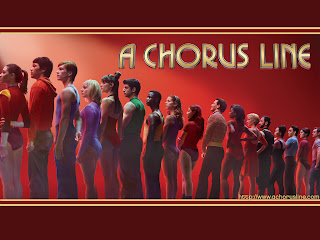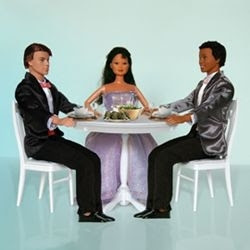
"The Dining Room" presented by the Keen Company at The Clurman Theatre at Theatre Row, September 27, 2007
A. R. Gurney's wonderful 1981 play presents a series of overlapping vignettes that give a glimpse into the many ways a dining room is part of the core of the American WASP. We get to be as much voyeur as audience in this delightful production by the Keen Company. With a cast of six, three men and three women, each actor plays so many roles that they are described in the program as merely, Man 1, Woman 2, and so on.
Director Jonathan Silverstein has assembled a pretty even cast, including Dan Daily, Claire Lautier, Mark J. Sullivan, Samantha Soule, Anne McDonough and Timothy McCracken. Their ages span a generation, but each actor at one point or another plays either parent or child. Stronger among the cast were Samantha Soule, Anne McDonough and Dan Daily.
Ms. Soule had a rather lovely moment as an aging, doddering, family matriarch who no longer recognizes her own family and is terribly uncomfortable at her son's home on Thanksgiving. When she asks to be driven back to her mother's house, her confusion at being told the house was no longer standing was quite touching.
Ms. McDonough also gave a nice turn as an aging aunt, showing her grand-nephew the ins and outs of tableware, from the silver flatware, to the china to the crystal finger bowls. When he reveals that his interest is only for a college anthropology project, her indignation is palpable. She was soon channeling my 13 year old niece with every requisite "duh!"
Mr. Silverstein keeps the pace moving very nicely across Dana Moran Williams' lovely set of a bordered parquet floor with an eclectic mix of Chippendale and Sheraton style furniture, topped with an clever ceiling treatment that turned the Clurman's black box into a much warmer space. Josh Bradford's lighting complemented nicely. Theresa Squires costumes, all in shades of blue tied together well.
I remember seeing "The Dining Room" in the mid 1980s, in another wonderful production under the direction of someone less than talented. Mr. Gurney's writing truly comes through as the strength of this show. It's a wonder there aren't more productions of it - it almost seems fool-proof.











